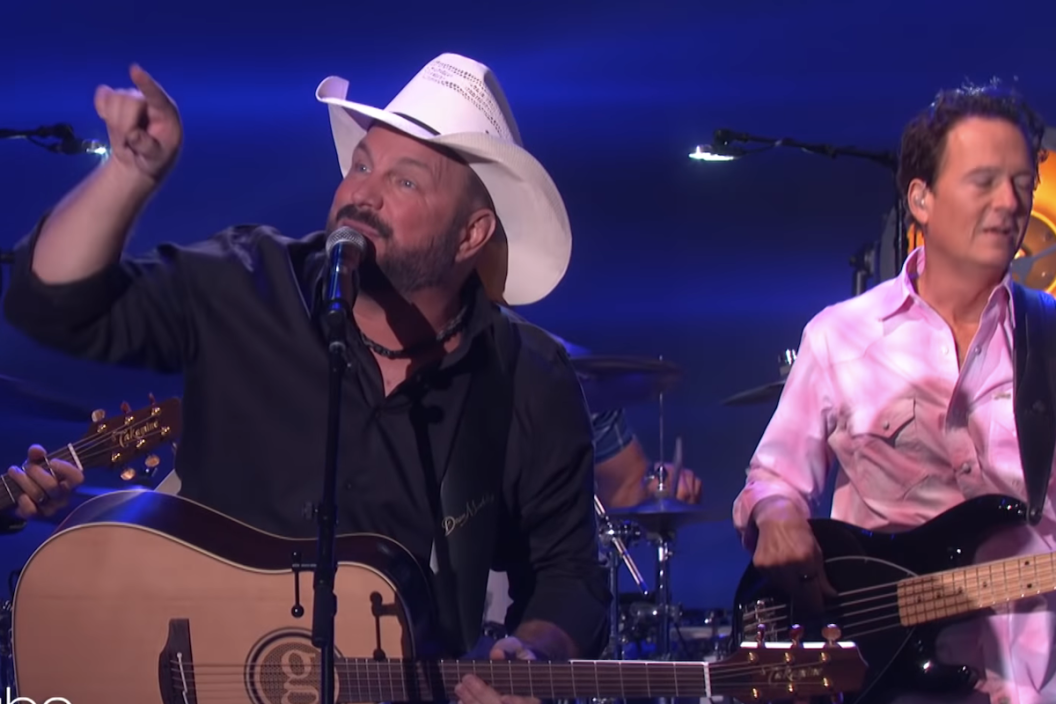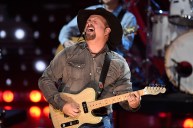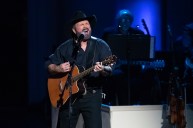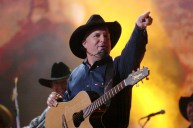When it comes to cover songs that eclipsed the fame of prior recordings, few country music standards got a bigger boost by a major star than when the Dennis Linde composition "Callin' Baton Rouge" entered the Garth Brooks songbook.
Linde, the writer of everything from Elvis Presley's "Burning Love" to the Dixie Chicks' "Goodbye Earl," first heard his song on a major label album after the Oak Ridge Boys recorded it for 1978's Room Service. The original version mixes a who's-who of studio musicians, including fiddler Johnny Gimble, with the familiar four-part harmonies of one of country music's all-time great vocal groups. Despite sounding weak compared to a couple of future renditions, the original deserves a listen if only because it served as a showcase of Richard Sterban's unmatched bass vocals.
For the 1989 album Friday Night in America, New Grass Revival worked with future Trisha Yearwood producer Garth Fundis on what briefly served as the song's seminal recording. The bluegrass supergroup's lineup of the time, anchored by fiddler Sam Bush, banjo picker Bela Fleck and singer and guitarist John Cowan, delivered a rocking, grassed-up version of one of country music's better odes to the culture and music of Louisiana.
Most famously, Brooks continued his habit of rewriting country music history with his version, as heard on the 1993 album In Pieces.
"I have always been a fan of 'Baton Rouge'," wrote Brooks in the liner notes for 1994's The Hits. "I was, still am and always will be a fan of the members of New Grass Revival, four guys well ahead of their time (even if they came out thirty years from now). "Baton Rouge" was a single for them about the time my first album was released. This song did not even break the top thirty, and I believe it did not get a fair shot. When we recorded it, it seemed only natural to bring in the guys from New Grass Revival - Pat Flynn, Bela Fleck, John Cowan, and Sam Bush, teamed with Jerry Douglas. This was the first time the New Grass Revival had been together since their breakup over a year prior to the recording of this song. It was a very good day and an extremely proud moment, and I think this is reflected in the cut itself."
Read More: 5 Unforgettable Moments From Garth Brooks' Stadium Tour
With his own dream team of in-studio pickers, Brooks injected the song with his rock showmanship, turning it into a crowd-pleaser that still wows stadium crowds itching to hear "Friends in Low Places," "The River," "Shameless," "Ain't Going Down (Til the Sun Comes Up)" and other hits. In the process, he brought immortality to a great song that'd never gotten a fair shake in Nashville.
Brooks' version blares at LSU Tigers football and baseball games, making it one of the songs of the South to become a part of Southeastern Conference (SEC) tradition.
This story previously ran on Nov. 26, 2019.
'Callin' Baton Rouge' Lyrics:
I spent last night in the arms
Of a girl in Louisiana
And though I'm out on the highway
My thoughts are still with her
Such a strange combination of a woman and a child
Such a strange situation stoppin' every hundred miles
Callin' Baton Rouge
A replay of last night's events
Roll through my mind
Except a scene or two
Erased by sweet red wine
And I see a truck stop sign ahead
So I change lanes
I need a cup of coffee
And a couple dollars change
Callin' Baton Rouge
Operator won't you put me on through
I gotta' send my love down to Baton Rouge
Hurry up won't you put her on the line
I gotta' talk to the girl just one more time
Hello Samantha dear I hope you're feelin' fine
And it won't be long until I'm with you all the time
But until then I'll spend my money up right down to my last dime
Callin' Baton Rouge
Operator won't you put me on through
I gotta' send my love down to Baton Rouge
Hurry up won't you put her on the line
I gotta' talk to the girl just one more time
Oh in Baton Rouge
Sweet Baton Rouge, my Baton Rouge
Now Watch: 'The Thunder Rolls': The Story Behind Garth Brooks' 1991 No. 1 and its Banned Video




